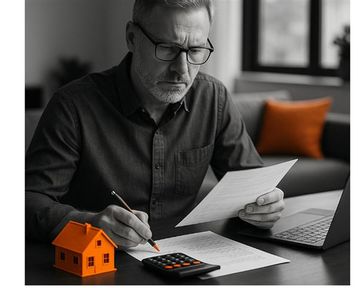Unlocking the power of home equity
For many home buyers in Namibia, the main focus is on creating a home, often overlooking the investment potential beyond knowing that real estate generally appreciates over time. However, understanding and leveraging your property’s equity can be transformative, helping you manage finances, invest in home improvements, and build wealth.
Home equity represents the financial stake you have in your home. For most, it’s a substantial portion of their net worth. But equity is more than just a number; it’s a powerful asset that can build long-term wealth, provide financial security, and offer low-interest borrowing options.
In essence, home equity is the part of your home’s value that’s debt-free and fully yours. When you buy a home, you often finance it with a mortgage, making regular payments over time. As you pay down the mortgage and your home’s market value appreciates, your equity grows. Home equity is simply the market value of your home minus the balance you owe on your mortgage.
Why is home equity important?
Home equity has several key financial benefits that every homeowner should work at maintaining. Here we take a look at some of these factors:
1. A source of wealth and financial aecurity
Home equity acts as forced savings, growing as you pay down your mortgage. For many Namibians, it’s their largest financial asset, providing security for retirement or during financial challenges. Unlike many investments, home equity is a tangible asset that can appreciate over time, making it a foundational element of a long-term financial strategy.
2. Access to low-interest borrowing options
One major advantage of home equity is that it can serve as collateral for loans, often at lower interest rates than unsecured loans. This can help fund significant expenses such as school fees or starting a business. However, it’s essential to borrow responsibly, as these loans are secured by your home, meaning that failure to repay puts your property at risk.
3. Supports retirement planning
Home equity can be valuable in retirement. Some Namibian retirees downsize, selling their property and using the proceeds to supplement their income. Others may explore home equity release options to access funds without relocating. For many, home equity becomes a reliable income source that supports a comfortable retirement without depleting other investments.
4. Increases home value with strategic investments
Smart home improvements can increase your home’s market value and, by extension, your equity. Projects like kitchen remodels, bathroom upgrades, or paving your driveway can boost resale value. Prioritise improvements with high returns to enhance both the appeal and market value of your home.
5. Provides a financial safety net
Home equity can act as a financial buffer in times of hardship. Home equity loans enable you to cover unexpected expenses—like medical bills or urgent home repairs—without selling assets or taking on high-interest debt. When used wisely, home equity can be a powerful safety net.
How to build your home equity faster
Building home equity faster is a smart way to enhance your financial security and gives you flexibility for future investments or borrowing options. Here are effective strategies to accelerate equity growth:
1. Make extra payments on your home loan
Adding a bit extra to your monthly mortgage payment, even if it’s a small amount, goes directly toward the principal balance. This helps you build equity faster and reduce the amount of interest you pay over time. You could also focus on paying biweekly instead of paying monthly. This results in one extra payment per year, helping reduce the principal balance more quickly.
2. Increase your down payment
If you’re still in the buying stage, consider making a larger down payment. A higher initial investment reduces the loan amount and gives you more equity from the start.
3. Make lump-sum payments
Use windfalls like tax refunds, work bonuses, or inheritance funds to make one-time payments directly toward the principal. These lump-sum payments reduce the balance significantly and boost your equity.
Some Namibian lenders allow an annual principal reduction without penalty. Take advantage of this to reduce your loan balance directly each year.
4. Invest in High-ROI Home Improvements
Certain home improvements—such as kitchen renovations, energy-efficient windows, or solar panels—can increase your home’s value, thereby increasing your equity. Focus on projects with a high return on investment (ROI) and avoid over-improving for your area.
Simple landscaping, a fresh coat of paint, or exterior updates also increase market value, indirectly building equity.
5. Stay on top of regular maintenance
Regular maintenance is essential for preserving your home’s value and supporting the growth of your equity. By keeping your property in good condition, you can prevent major repairs down the line and help ensure that your home retains or even increases its market value. On the other hand, neglecting routine upkeep can lead to costly issues that may reduce your home’s worth, ultimately having a negative impact on your equity.
While home equity offers substantial benefits, it’s crucial to consider the risks of borrowing against it. Loans secured by your home come with the risk of losing the property if repayments fall behind. Also, market fluctuations can impact your equity. In a downturn, you might end up with negative equity, where you owe more than the property’s value.
To use home equity responsibly, borrow only what you need, carefully understanding repayment terms, and having a solid plan to repay. With thoughtful planning, home equity can help you achieve financial goals and provide a secure foundation for the future.
“The golden rule is to use home equity to build wealth, not merely to fund lifestyle expenses.”

